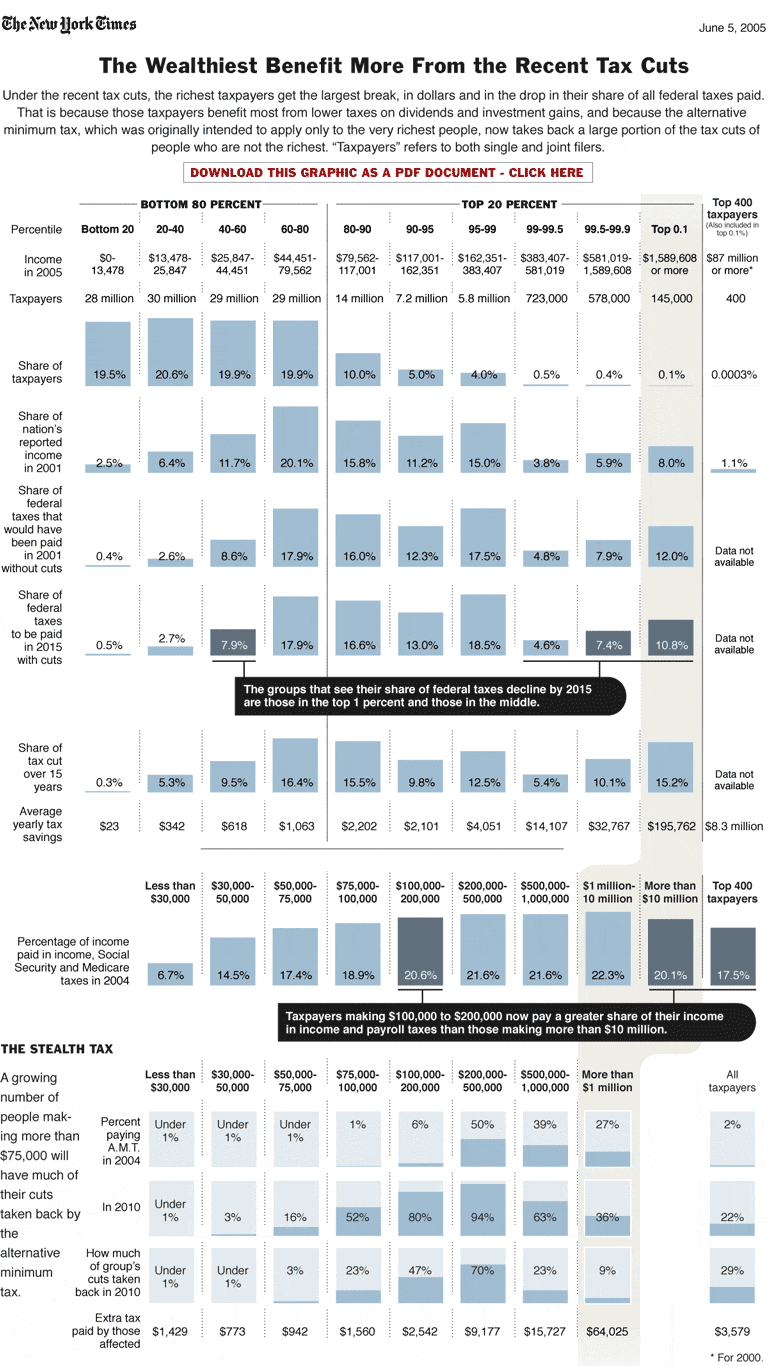|
|
Saturday, June 11, 2005
I love it when people making hundreds of thousands of dollars a year are said to be middle class. Middle means middle, as in, in the middle. So lets say the middle is the middle 60%. In other words, we'll divide up the population 20-60-20. The middle 60% of household incomes are middle class. Fair? I think so. So what numbers do we get?

Well, looking at the above chart, that would mean people earning from $13,478 to $79,562 are middle class.
Listen! Do you hear it?
As expected, I hear the right-wingers screaming that defining the middle as the middle 60% is too narrow. OK, let's do the middle 80%. In other words, we'll divide up the country 10-80-10. The middle class will be everyone but the bottom 10% and the top 10%. In accommodating our right-wing friends, I think that's about as far as we can go in stretching what the middle means. So what numbers do we come up with here? Well, the chart doesn't divide up the bottom 20%, but that's really irrelevant here, because the right-wingers really object to the upper figure. So what would the upper figure now be? Anyone earning $117,001 and below is the middle class. So remember that the next time the right-wing or the corporate media tries to pass off one of the wealthiest (top 10%) in the country as middle class. They try this all the time in their attempt to paint transfer of wealth to the rich as pro-middle class. No it's not. It's anti-middle class.
As Bob Herbert writesThe privileged classes, with the Bush administration's iron cloak of protection, avoid their fair share of taxes, are reluctant to pay an honest dollar for an honest day's work (the federal minimum wage is still a scandalous $5.15 an hour), refuse to fight in their nation's wars, and laugh all the way to their yachts. They don't need tax cuts or any other economic aid. They already have way too much of the nation's wealth, so much so that there's not enough left for everyone else.
Jack Clark 5:26 PM [+]
 
Post #111853630923374832

|

